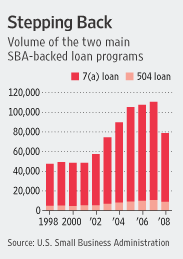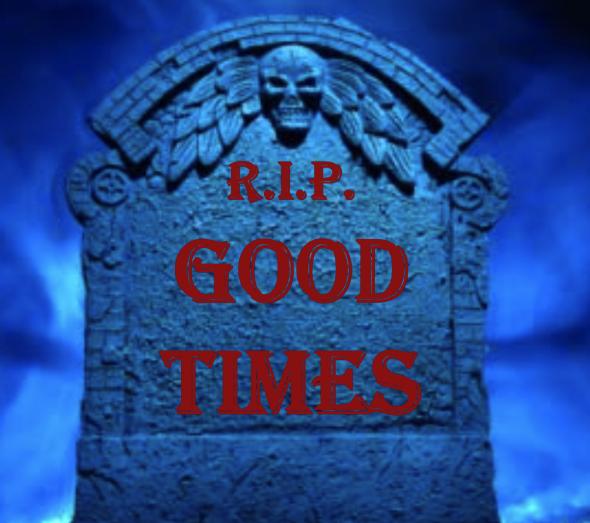The NFIB has released a survey that examines the state of credit for small business.
The following is a summary of their findings:
Loan Demand is Down
Since the third quarter of 2007, the economy has slowed. This has produced a decline in borrowing activity by small firms (lower credit demand) and smaller loan pipelines at the nation’s banks. This is confirmed by substantial declines in the percent of firms planning and making investments in inventory stocks and capital improvements and new equipment. Arguably, some of this decline may be due to owners “thinking they might not get credit”, but for necessary expenditures, owners likely try to get needed financing.
Even with no change in lending standards, C&I lending falls, although it has nothing to do with a “credit crunch”. As measured by the regular borrowing activity of NFIB’s 350,000 member firms, credit demand is down from its expansion peak reached early in 2006. Then, 40% borrowed on a regular basis, compared to 32% in September. This is not a credit-crunch (a supply side response), but rather a weakening of credit demand due to the weakness in the economy.
Credit Market Experiences
Obtaining needed financing was harder in July, August and September 2008 than it was in 2007, as fewer owners reported that all of their credit needs were met (more were turned down or got less credit than they wanted). Recent figures are equivalent to readings at the start of the 1990s expansion or during the 2001 “recession” (wasn’t much of one), but the unusual nature of the expansion from 1995 to the peak in 2000 makes interpretation more difficult as capital spending hit a wall on 12/31/99 (Y2K was done) and the dot.com bubble burst suddenly and dramatically. Statistically, this series shows nothing worse than what was experienced in 2001, not a “credit crunch”.
When credit costs and availability become a problem, small business owners signal the stress. But there clearly has been no sign of a “credit crunch” since its existence was declared by the Fed and financial commentators. In September, only 3% (3% in the first two weeks, 4% in the last two weeks) said credit was their top business problem, unchanged for 20 years, including the past 12 months. Small business owner response indicates like a normal business cycle contraction, with credit harder to get for some and with lower credit demand for others. But no spike in credit problems for small business owners appears as Wall Street apparently experienced.
The Bottom Line
In most “Main Street” markets, it’s pretty much business as usual, even with the shock of losing Fannie Preferred stock at many smaller lending institutions.
Overall, there is less “savings” to lend out. Sovereign wealth funds have returned some of that savings pool by buying into troubled banks, but there is less for the Wall Street banks to lend to each other and likely a little less for community banks to lend out as large banks poach deposits from local institutions. But loan demand is down as well and this should not be attributed to a “credit crunch”.
For every loser in the market, there is a winner who sold the “asset” at a high price and got the money. Sound lending practices at banks lending to real customers involve leverage of 10 to 1, not the 30 to 1 we saw on Wall Street.
Hopefully we can rein in these excesses before we lose the baby and the bathwater. In the meantime, we still have too many houses (rental units, condos, single family) and small business sales are weak, and that’s the basic problem.


